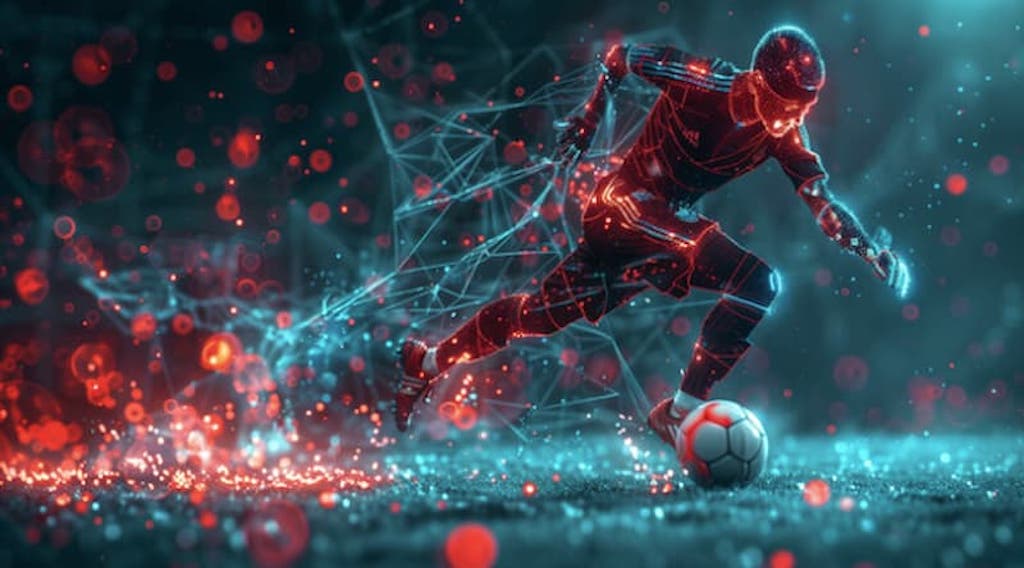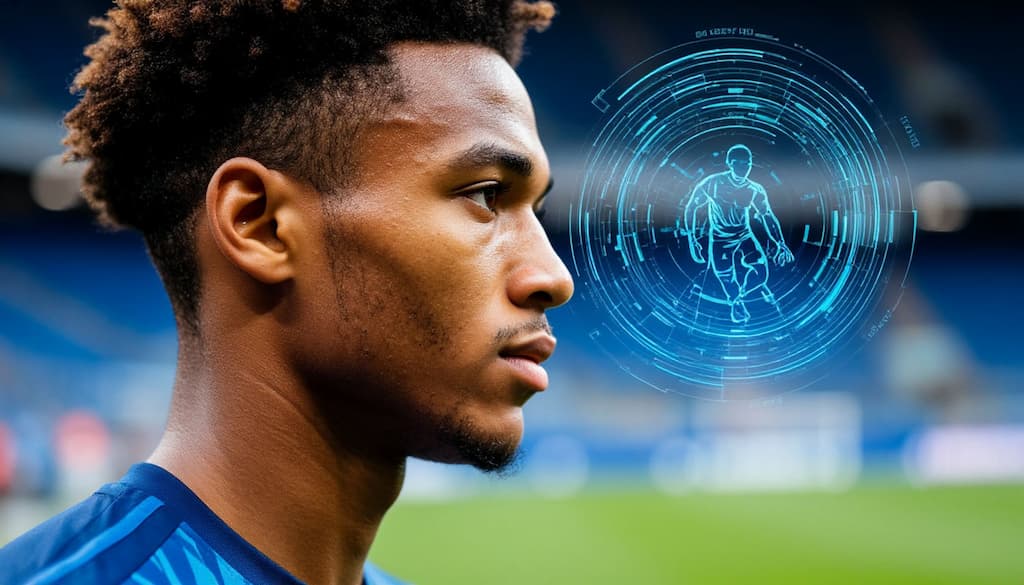Primary research goal is to illustrate how artificial intelligence and digital platforms are employed to improve athletic performance, prevent injuries, and optimize training routines.
Furthermore, it seeks to demonstrate how these technologies aid athletes and coaches in adjusting to evolving requirements and maintaining competitiveness in their respective fields.
Investigation of the Influence of digital monitoring on injury prevention research
Title: “The Effect of Digital Monitoring on Injury Prevention in Elite Soccer Players.”
Authors: Smith et al., Journal of Sports Science and Medicine, 2019.
Details of the study purpose: This study aimed to assess how the utilization of digital devices for monitoring physical activity and biometric indicators impacts injury prevention among elite soccer players.
- Methodology:
- The study included 200 footballers from five prominent European clubs.
- Participants were randomly divided into two groups: an experimental group using wearable monitoring devices and a control group continuing training without such devices.
- These wearables tracked various parameters, including heart rate, skin temperature, muscle activation levels, and fatigue indicators.
- Data collection occurred daily over a period of six months.
- Results:
- The experimental group exhibited a 25% decrease in injuries compared to the control group.
- Coaches were able to quickly respond to device-generated alerts and modify training programs accordingly, reducing physical strain when signs of exhaustion were detected.
- Athletes in the experimental group noted improvements in overall well-being and a reduction in chronic fatigue symptoms.
Conclusion:The application of digital devices and data analysis algorithms enables more efficient monitoring of athletes’ physical condition, leading to fewer injuries and enhanced overall performance.
AI application for analyzing game strategies
Research: Title: “Artificial Intelligence in Football: A Review of Current Applications and Future Directions.”
Author: Ramos et al., International Journal of Computer Science in Sport, 2020.
Details of the study: This research presents an overview of the current status and future prospects of AI applications in football.
- Key Areas of AI Application:
- Analysis of Game Strategies:AI is used to analyze large volumes of past match data, including player positions, movements, interactions, and tactical schemes. Machine learning algorithms assist coaches in identifying optimal player lineups and developing tactical plans for upcoming games.
- Prediction of Match Outcomes:Machine learning models trained on historical data can forecast probable match outcomes with up to 70% accuracy. This empowers coaches to better strategize and allocate resources.
- Training and Skill Enhancement:Video analysis enhanced by AI aids coaches and players in scrutinizing the techniques behind specific maneuvers, spotting mistakes, and suggesting corrective measures.
- Future Directions:
- Further advancement in AI will enable the integration of real-time data on players’ physical conditions, facilitating immediate tactical adjustments and substituting tired players.
- Improved precision in predictions and an expanded scope of analyzed factors, such as weather, pitch conditions, and even spectator sentiment.
Conclusion:AI has already demonstrated its worth in football by supporting coaches in making more informed decisions and refining game strategies. Continued deepening of AI integration across all facets of football management is anticipated in the near future.
Impact of video analysis on technical skills
Research: Title: “Video Analysis and Feedback for Improving Technical Skills in Tennis.”
Authors: Chen et al., European Journal of Sport Science, 2021.
Details of the study: The purpose of this study was to examine how video analysis and feedback influence the improvement of technical skills in young tennis players.
- Methodology:
- Sixty novice tennis players aged between 12 and 16 participated in the study.
- Participants were divided into two groups: an experimental group receiving video-based feedback and a control group continuing with regular training methods.
- The experimental group reviewed recordings of their practices and matches weekly, accompanied by coach commentary.
- These comments highlighted errors and suggested ways to rectify them. The training program lasted for six months.
- Results:
- Tennis players in the experimental group showed significant improvement in serve accuracy and forehand strokes compared to the control group.
- Feedback enabled participants to recognize their mistakes more quickly and work towards correcting them.
- Participant satisfaction with the learning process increased as they could observe their progress in real time.
Conclusion: Video-based feedback, leveraging AI for analyzing technical errors, is a powerful tool for enhancing sports skills. It accelerates the learning process and boosts athletes’ confidence in their abilities.
Role of AI in psychological preparation
Research: Title: “Using Artificial Intelligence to Monitor and Improve Psychological Well-being in Athletes.”
Author: Lee et al., Psychology of Sport and Exercise, 2018.
Details of the study: The study focuses on exploring the role of AI in monitoring and improving psychological well-being among athletes.
- Methodology:
- One hundred athletes at varying skill levels participated in the study.
- All participants used a mobile app specifically designed to monitor their emotional states.
- The app posed questions about mood, stress level, motivation, and other psychological aspects.
- Responses were analyzed using machine learning algorithms which determined the overall level of psychological comfort and offered recommendations for improvement.
- Results:
- Regular use of the app led to significant enhancement in participants’ general well-being.
- Anxiety levels decreased by 20% compared to the start of the experiment.
- Athletes reported increased motivation and improved focus during both training sessions and competitions.
Conclusion: Employing AI and mobile apps to monitor athletes’ psychological states can become a crucial component of their preparation. This approach facilitates timely identification of negative emotions and enables proactive measures to maintain a stable emotional balance.
Final conclusion
These studies underscore the significance of integrating digital technologies and artificial intelligence into sports practice. They not only aid in preventing injuries and enhancing physical performance but also contribute to the development of technical skills and support athletes’ psychological well-being.
Ongoing advancements in these technologies promise even greater opportunities for elevating athletic achievements in the future.
Author: Aleksandr Vasiltsov Market & Competitive Intelligence Analyst (junior)




